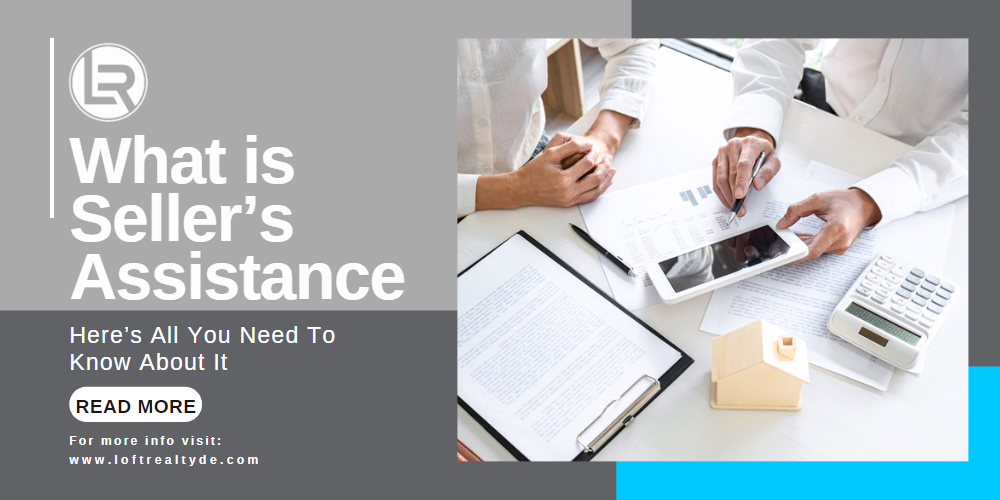What is Seller's Assistance? Here’s All You Need To Know

You've probably heard the term "seller assistance" if you want to buy or sell a home. Some mortgage plans may include it, but you need to know what it is.
When a seller helps a buyer with closing costs or other costs, this is called "seller assistance." Even though it might seem like seller assistance only helps the buyer, it can also help the seller.
What is a seller's assistance, exactly?
Seller’s assistance is when the seller gives the buyer credit, usually used to pay the buyer's closing costs. You can also use this credit to lower interest rates, cover the first month's mortgage payment, or pay escrow and title costs, property taxes, and other related costs.
Many people who want to buy a home plan for the down payment but forget the closing costs.
Buyers often ask for a seller's assistance if they can afford the home's down payment and monthly payments but don't have enough money for the closing costs. It is sometimes called "seller assist" or "seller concessions."
Want to know how seller assistance works? Here are the main points: Let's say a $300,000 house is for sale. With 3% seller help, a buyer can bid $295,000. It means that the seller would give the buyer a credit of $8,850 to cover the closing costs, and the seller would get $286,150 more than they put in.
Not all loans are eligible for seller assistance. There are limits on how much a buyer who qualifies for seller assistance can ask. The most you can borrow with an FHA loan in the U.S. or a regular home loan with at least 10% down is 6%. The most you can borrow with an investor loan is 2%, while the most you can borrow with a traditional home loan with a down payment of between 3% and 9% is 3%.
How Seller Assistance Benefits Sellers
At first glance, seller assistance might seem like it only helps the buyer since the buyer gets a credit at the closing. Seller assistance, on the other hand, has advantages for the seller.
Possible buyers could be drawn in with the seller's help. If a seller has been trying to sell their house for months but hasn't been able to, listing seller assistance, which is expected, may help them make a deal.
Another benefit is that the seller doesn't have to pay for help. Think of it as a gift to the buyer that is built into the price when the deal closes. In the last example, a buyer offered $295,000 with a 3% seller's aid. The seller wouldn't have to bring any cash to the table because they would get $286,150 at closing.
Most sellers will help buyers if the offer is at or above the advertised price. This way, the seller's closing costs are close to what they're asking for. However, they can still help the buyer by including the closing costs in the purchase price (so the buyer doesn't have to bring any cash to closing).
Before continuing with seller assistance, you should always get a pre-qualification letter from the buyer's lender.
How Seller Assistance Benefits Buyers
Buyers almost always benefit from seller assistance because it includes closing costs in the price of the home, so the buyer doesn't have to pay for them out of their own pocket. Many people buying their first home might need more money to pay closing costs. Because of this, you might need help buying a house or the house of your dreams.
Help from the seller could also help with extra costs, like when a property is old and needs more inspections. Buyers can be sure that the seller will take care of these costs. Also, buyers could use money from the seller to lower their interest rate and monthly mortgage payments.
Buyers should know that many sellers will still prefer an offer that is close to or slightly higher than the house's asking price. Most sellers who help want the customer to offer a higher price, allowing the seller to keep their desired net profit.
Take a look at the following: The seller may give the buyer the 3% discount but still expect the buyer to pay the asking price of $300,000 (or more) so that their profit is close to the asking price. But remember that if you offer more than the asking price, the house must appraise for that amount. If a seller and buyer agree on a price of $310,000 with a 3% discount, the home must be worth that much.
Also, let's say the buyer is getting a loan from the U.S. Department of Veterans Affairs (VA), the U.S. Department of Agriculture (USDA), or the Federal Housing Administration (FHA). In that case, the house's appraised value usually can't be changed after the appraise
Other ways to get help than from a seller's assistance
Even though seller assistance can be suitable for both the buyer and the seller, it is only sometimes the best or even possible. Here are some other ideas:
1. Loans from the FHA
An FHA loan, mainly for first-time home buyers, lets the buyer borrow a portion of the house's value as long as their credit score is high enough or they put down a lot of money. Unlike seller assistance, this would come from a certified lender, not the home's seller.
Also, FHA loans can have donated down payments, which means that someone can "give" a buyer a part of their down payment.
2. Closing Costs Credit
Ask your lender if you can get credit for closing costs. Most lenders wait to give out information until a buyer asks for it. This type of credit is usually only available if the buyer agrees to pay a higher price. Still, it lets the buyer get the property they want without bringing cash to closing. Sometimes, closing cost credits can only be up to 3% of the price of the home.
3. Grants for first-time home buyers
Another option is to get help from the government when buying a house for the first time. These funds could be used to pay for closing costs or, in some cases, your down payment. They can help you buy a house with no money down if you qualify.
Final Thoughts
Seller’s Assistance is a unique feature that may be good for both buyers and sellers. Buyers with limited funds don't have to pay closing costs immediately, and sellers in a tough market may be able to sell their homes for good. It might be a good deal for both sides if they know what they're getting into before signing on the dotted line.
If you want to learn more about seller’s assistance and if it fits your needs, feel free to reach out to us today at Loft Realty so we can find the best solution for you.
Categories
Recent Posts

Top-Rated Hospitals in Delaware

Exciting Events to Heat Up Your Winter in Delaware!

Smarter Home-Buying Decisions

Why Retirees Are Falling in Love with Delaware: Neighborhoods, Communities, and Everything in Between

Best Places to Go Sledding in Delaware

Delaware’s Secret: Reasons Why It’s Not Expensive to Live Here!

5 Best Spots for Last-Minute Holiday Shopping

8 Best Places to Eat at the Rehoboth Beach Boardwalk

The 8 Biggest Mistakes People Make When Moving to Delaware—Here's What You Need to Know

Is Wilmington, Delaware Safe? A Look at Recent Changes in Crime Rates and Community Efforts
